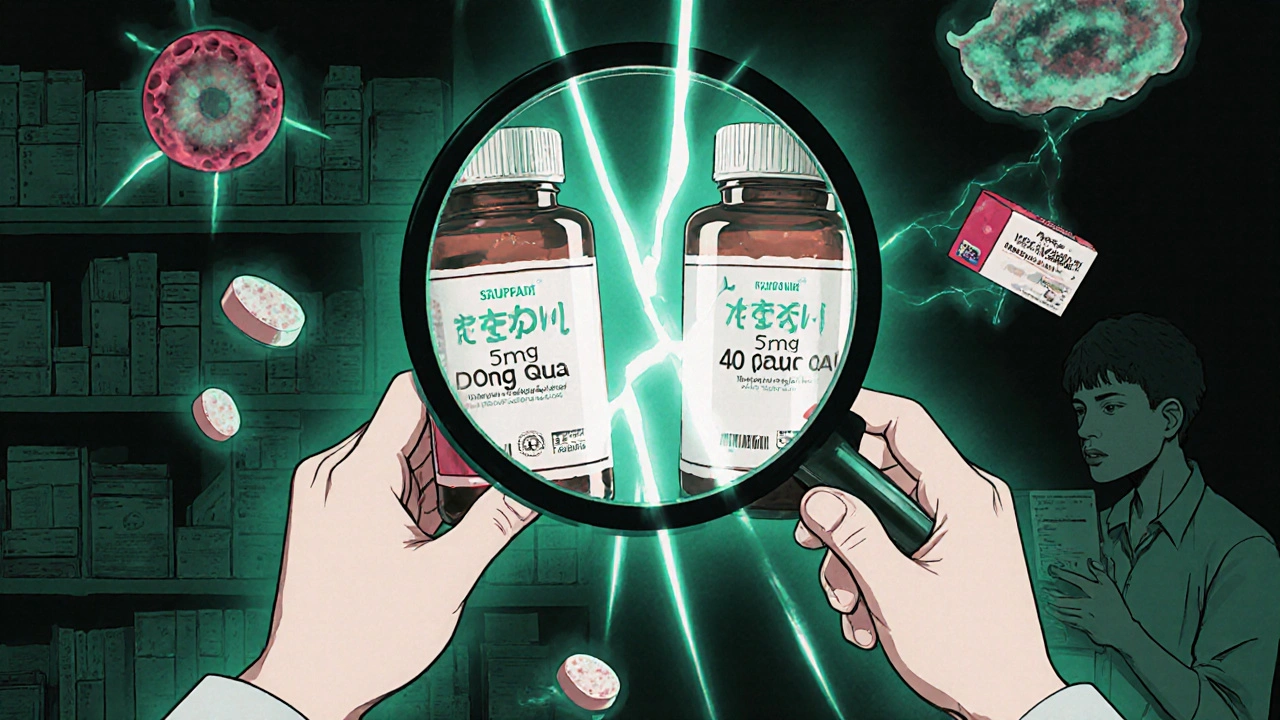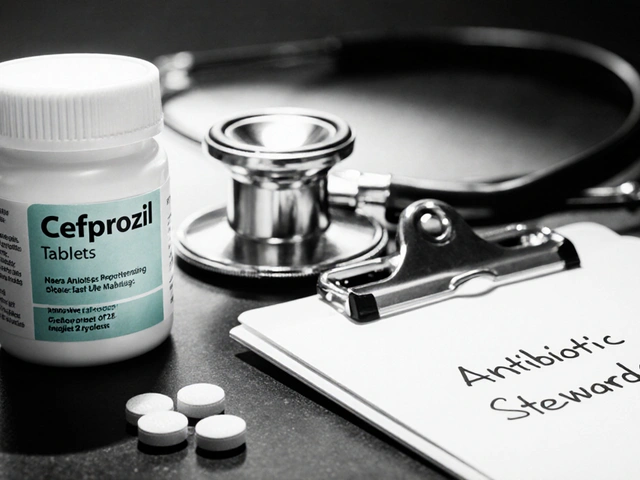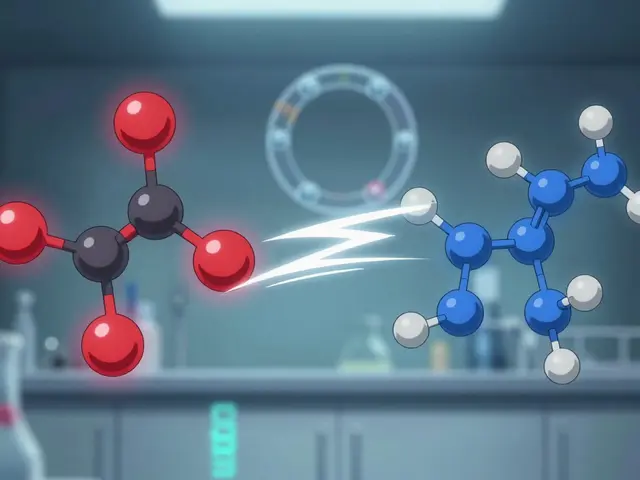
Health November 10, 2025
Dong Quai and Warfarin: What You Need to Know About the Bleeding Risk
Warfarin & Dong Quai INR Risk Calculator
How Dong Quai Affects Your INR
Based on clinical studies showing average INR increases of 1.5-2.2 points when Dong Quai is taken with warfarin
When you're on warfarin, even small changes in your diet or supplements can send your INR levels spiraling out of control. One of the most dangerous but often overlooked interactions involves Dong Quai, a popular herbal remedy used for menstrual cramps, menopause, and fatigue. If you're taking warfarin and thinking about trying Dong Quai, stop - and read this first.
Why Dong Quai Is Risky with Warfarin
Dong Quai (Angelica sinensis) has been used in Traditional Chinese Medicine for over 2,000 years. It's often called "female ginseng" and is marketed for hormonal balance, menstrual pain, and circulation. But underneath its gentle reputation is a powerful chemical profile that directly interferes with blood clotting. Warfarin works by blocking vitamin K, which your body needs to make clotting factors. It’s a delicate balance - too little and you risk clots; too much and you bleed internally. Dong Quai doesn’t just add to this risk - it multiplies it. Studies show Dong Quai contains coumarin-like compounds, including ferulic acid and osthole, which inhibit platelet aggregation. That means your blood can’t clot as easily. When you add this to warfarin, you’re essentially doubling down on anticoagulation. The result? A higher chance of bruising, nosebleeds, bloody stools, or worse - brain or gastrointestinal hemorrhage.The Science Behind the Interaction
It’s not just one mechanism. Dong Quai attacks the system in multiple ways:- Pharmacodynamic effect: It directly makes your blood thinner by preventing platelets from sticking together - the same way aspirin does, but without the safety net of dosing control.
- Potential pharmacokinetic effect: Some lab studies suggest Dong Quai may slow down how your liver breaks down warfarin, specifically by inhibiting the CYP2C9 enzyme. This could cause warfarin to build up in your system, raising your INR even if you haven’t changed your dose.
- Unpredictable potency: Unlike prescription drugs, herbal supplements aren’t standardized. One bottle of Dong Quai might have 5mg of active compounds; another might have 40mg. A 2020 USP study found an 8-fold difference in ferulic acid content across brands.
What the Experts Say
Major medical institutions don’t mince words:- The Cleveland Clinic advises: "Avoid Dong Quai in warfarin-treated patients due to lack of data."
- The University of California San Diego lists Dong Quai under "Increased Risk of Bleeding," alongside ginkgo, garlic, and fish oil.
- The American Heart Association calls it a "high-risk herb" for anticoagulant users.
- Dr. Catherine Ulbricht, a top pharmacist at Massachusetts General Hospital, warns that Dong Quai can push INR from 2.5 to over 4.0 - a level that triples bleeding risk.

Real Cases - Not Just Theory
This isn’t hypothetical. Real people have ended up in the ER because of this combo. In October 2023, a user on the r/anticoagulants subreddit reported their INR jumped from 2.8 to 5.1 after starting Dong Quai for hot flashes. They were hospitalized for observation. On HealthUnlocked, 23 cases between 2020 and 2023 showed an average INR increase of 1.7 points after Dong Quai use - enough to cross into dangerous territory. One woman in her late 60s, on warfarin for atrial fibrillation, started taking Dong Quai for "natural hormone support." Within a week, she developed unexplained bruising across her thighs. Her INR was 5.8. She needed a vitamin K injection and a week of monitoring.What You Should Do
If you’re on warfarin:- Don’t take Dong Quai. There’s no safe dose established. Even small amounts can be risky.
- Check all your supplements. Dong Quai is often hidden in blends labeled "women’s health formula," "hormone support," or "circulation booster."
- Ask your pharmacist. Most pharmacies have access to herb-drug interaction databases. Bring your supplement bottle in - don’t just name it.
- Get your INR checked. If you’ve taken Dong Quai in the past month, ask your doctor to test your INR. It might be higher than you think.

Why This Keeps Happening
Many patients assume "natural" means "safe." But natural doesn’t mean harmless. Dong Quai is a plant with powerful chemicals - just like digitalis from foxglove or morphine from poppies. The problem is compounded by poor regulation. Under the Dietary Supplement Health and Education Act (DSHEA) of 1994, supplements don’t need FDA approval before being sold. Dong Quai products are widely available in health food stores, Amazon, and Chinese herbal shops - often with no warning labels about warfarin. A 2022 survey found 68% of warfarin users didn’t know herbal supplements could interfere with their medication. But 82% said they’d stop if their doctor warned them.The Bigger Picture
The global Dong Quai market is growing - up to $342 million in 2022. Sales in North America rose 14% annually. But the risk isn’t shrinking. The European Medicines Agency now requires warfarin interaction warnings on Dong Quai labels, effective January 2025. The NIH is funding a major clinical trial (NCT05523419) to better understand the interaction - results expected in late 2024. Until then, the safest advice is clear: if you’re on warfarin, skip Dong Quai. The potential consequences - internal bleeding, stroke, death - far outweigh any perceived benefit.What to Do If You’ve Already Taken It
If you’ve taken Dong Quai while on warfarin:- Stop taking it immediately.
- Call your doctor or anticoagulation clinic. Tell them exactly what you took and when.
- Get your INR checked within 3 to 5 days.
- Don’t restart it, even if you feel fine. The effects can linger.
Can I take Dong Quai if I’m not on warfarin?
If you’re not taking anticoagulants, Dong Quai may be safe for short-term use under the guidance of a qualified herbalist or healthcare provider. But it’s still not risk-free. It has estrogen-like effects, so avoid it if you have hormone-sensitive conditions like breast cancer, uterine fibroids, or endometriosis. Also, stop taking it at least two weeks before any surgery.
What supplements are safe to take with warfarin?
Very few supplements are considered completely safe with warfarin. Vitamin K (in consistent, small amounts) is often used to stabilize INR. Calcium and vitamin D are generally low-risk if taken in standard doses. Always check with your doctor before starting anything new - even something as simple as a multivitamin can contain hidden ingredients like vitamin E or ginkgo.
Is there a difference between Dong Quai and other herbs like ginkgo or garlic?
No - they’re all in the same danger zone. Ginkgo, garlic, ginger, and fish oil all increase bleeding risk with warfarin. Dong Quai is just one of many. The key difference is that Dong Quai is often marketed as "safe for women" or "natural hormone support," which makes people less cautious. But pharmacologically, it’s just as risky.
Why isn’t Dong Quai banned if it’s so dangerous?
In the U.S., dietary supplements aren’t required to prove safety before sale. The FDA can only act after harm is reported. While there are warnings from medical groups, Dong Quai remains legal and widely sold. The FDA has received dozens of adverse event reports involving herbal products and anticoagulants - but without a clear pattern, they can’t ban it outright.
How often should I get my INR checked if I’m on warfarin?
If you’re stable, most people check every 4 to 6 weeks. But if you start or stop any supplement - including Dong Quai, fish oil, or even a new multivitamin - get your INR tested within 3 to 5 days. Changes can happen fast. Don’t wait for your next scheduled test.
Write a comment
Items marked with * are required.






10 Comments
Chrisna Bronkhorst November 11, 2025 AT 01:20
Dong Quai is a time bomb wrapped in a yoga mat. People think herbal = safe but that’s like saying a rattlesnake is safe because it’s natural. Warfarin’s already a tightrope walk - adding this is like juggling chainsaws. No one’s stopping you, but you’re not just risking your life, you’re wasting ER resources.
Eve Miller November 11, 2025 AT 09:36
There is no such thing as a "safe dose" of Dong Quai when you're on warfarin. The pharmacodynamic and pharmacokinetic interactions are well-documented. The fact that people still take it shows a catastrophic failure in public health literacy. Supplement labels should carry the same warning as cigarette packs: "This can kill you."
Amie Wilde November 13, 2025 AT 00:58
my mom took this for hot flashes and ended up in the hospital. no joke. she didn’t even know it was in her "women’s blend". just stop. your body doesn’t need it.
Gary Hattis November 13, 2025 AT 14:05
Look, I get it. In China, Dong Quai’s been used for centuries. But traditional use ≠ modern pharmacology. You can’t mix ancient remedies with anticoagulants without consequences. It’s like using a horse-drawn cart on the interstate. The system wasn’t built for it. And now we’ve got 342 million dollar markets pushing this stuff like it’s tea. We need regulation, not just warnings.
Erica Cruz November 15, 2025 AT 00:31
Wow, another fear-mongering post. You’re acting like Dong Quai is cyanide. The INR increase? Minor. The study sample sizes? Tiny. People panic over herbs because they don’t understand pharmacology. Meanwhile, they’re fine with statins that cause rhabdo. Hypocrisy.
Shante Ajadeen November 15, 2025 AT 11:48
Thank you for this. I’m on warfarin and had no idea. I just bought a "hormone balance" tea last week. I’m throwing it out today. I’ll call my pharmacist tomorrow. You saved me from a nightmare.
Johnson Abraham November 16, 2025 AT 03:26
lol why is everyone so scared of plants? its just a root. if you cant handle it then dont take it. warfarin is the real problem anyway. why dont they make a better pill? also i took dong quai for 3 months and my INR was fine. so u r wrong.
Deepa Lakshminarasimhan November 17, 2025 AT 17:07
Ever notice how all the "dangerous" herbs are banned in Europe but sold here? And the FDA never acts? Coincidence? I think the supplement industry owns the FDA. They’re letting this happen so they can sell more. Dong Quai’s just the tip. Next up: your multivitamin’s gonna kill you. Mark my words.
Esperanza Decor November 18, 2025 AT 10:14
I’m so glad someone finally wrote this. I’ve been trying to tell my sister for months. She’s on warfarin and swears her "all-natural period relief" pills are fine. She won’t listen until someone gets hurt. Please share this. People need to know this isn’t just theory - it’s happening every day. And no, black cohosh isn’t a magic fix either - check with your doctor first.
dace yates November 20, 2025 AT 06:27
Is there any peer-reviewed data on whether the estrogenic effects of Dong Quai interact with warfarin’s metabolism independently of the anticoagulant effects? Or is that just theoretical?